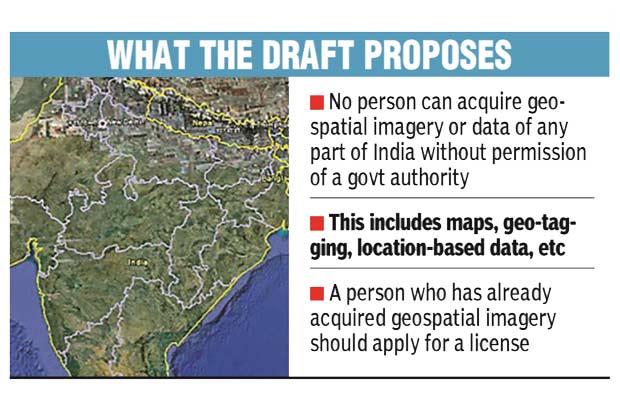Begin typing your search...
Geospatial Info Regulation Bill can affect us all: Experts
Daily activities — from updating your Facebook check-in status to booking a cab or ordering food through an app — will only get more cumbersome, if the Geospatial Information Regulation Bill, 2016, is passed.

Chennai
Released by the Ministry of Home Affairs, this bill which is currently in its draft stage, states that permission from a government authority is compulsory for any acquisition, dissemination, publication and distribution of geospatial information of India, which includes maps and satellite data.
Environmental researcher Dharmesh Shah, who uses geospatial data, pointed out the bill will severely affect citizens. “Persons and businesses using location-based data like Ola or Zomato, geo-tagging features in Facebook and Twitter or using maps of areas affected by a disaster, will be hard-hit. How will the government implement this law? Even a photo clicked on a smartphone comes with a location tag. Marginalised groups — like the traditional fishermen community and forest-dwellers, who have started mapping their land use, to prevent industrialisation, will also be affected,” he said.
Satyarupa Shekhar, Director of Government Outreach and Advisory, Citizen Consumer and Civic Action Group (CAG), said the bill criminalises the use of geospatial data.
“If persons or businesses are found using geospatial data without a license, a fine of Rs one crore to Rs 100 crore and/ or imprisonment for a period of seven years will be levied. However, there are no details on the fee required to procure a license or its validity. This means that geospatial data is restricted only to those who can pay for it. This is in conflict with the National Geospatial Policy released in April 2016, which empowers people through the use of geospatial data,” she explained.
Siddharth Hande, Spatial Data Analyst and Founder of Kabadiwalla Connect, said, “This bill, in simple terms, means that nobody other than the government can make and use maps or other data. This is a regressive bill, as technology has moved far ahead.”
Rakesh Mani, Founder and COO of Genie, a service start-up, said that this bill only makes life more difficult for people. “Many use location-based apps to book cabs or order food and access other services. If this bill is passed, it will become cumbersome for the people, disrupting their way of life,” he said.
In response to the bill, a petition titled Save The Map is being widely shared online.
Visit news.dtnext.in to explore our interactive epaper!
Download the DT Next app for more exciting features!
Click here for iOS
Click here for Android
Next Story



